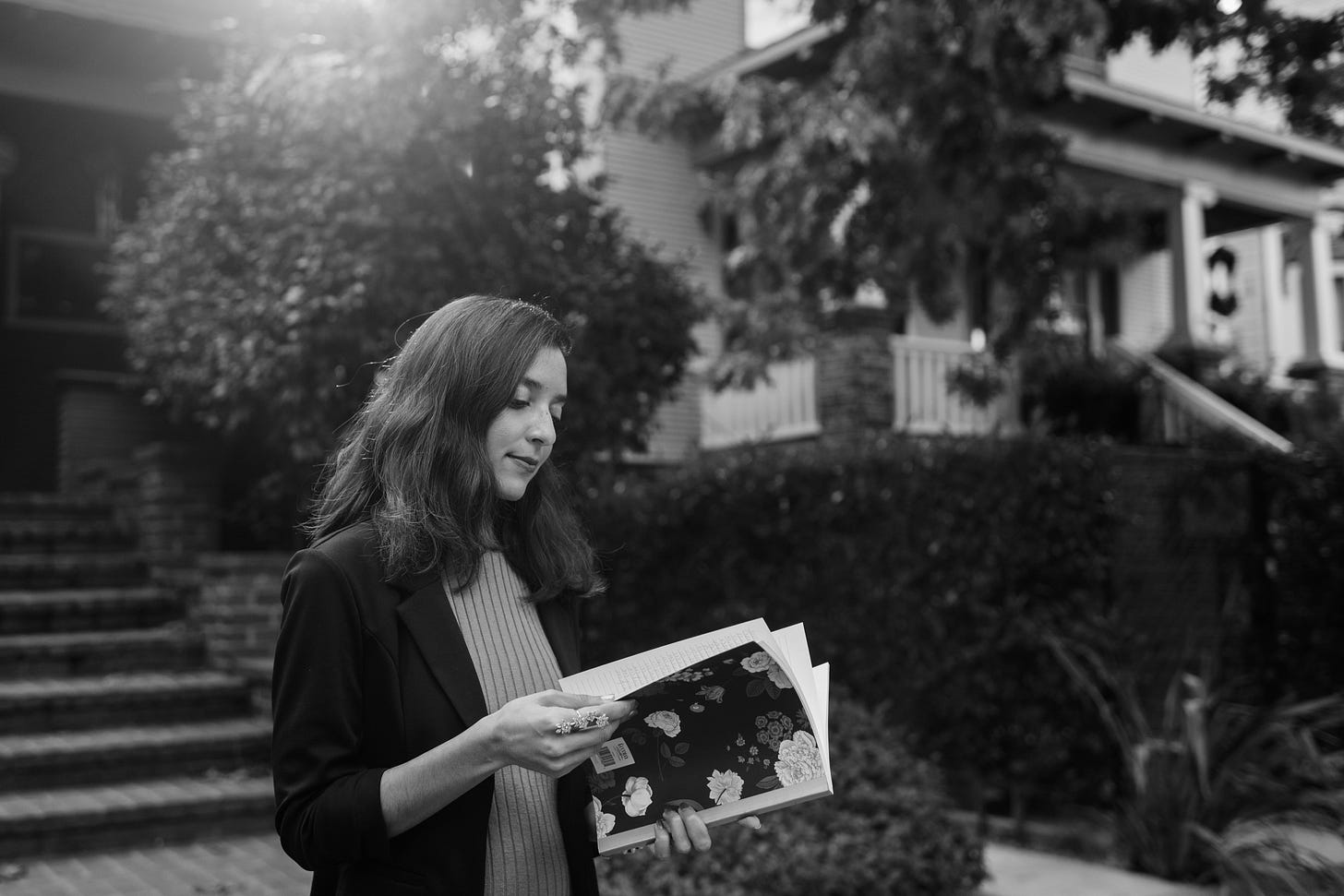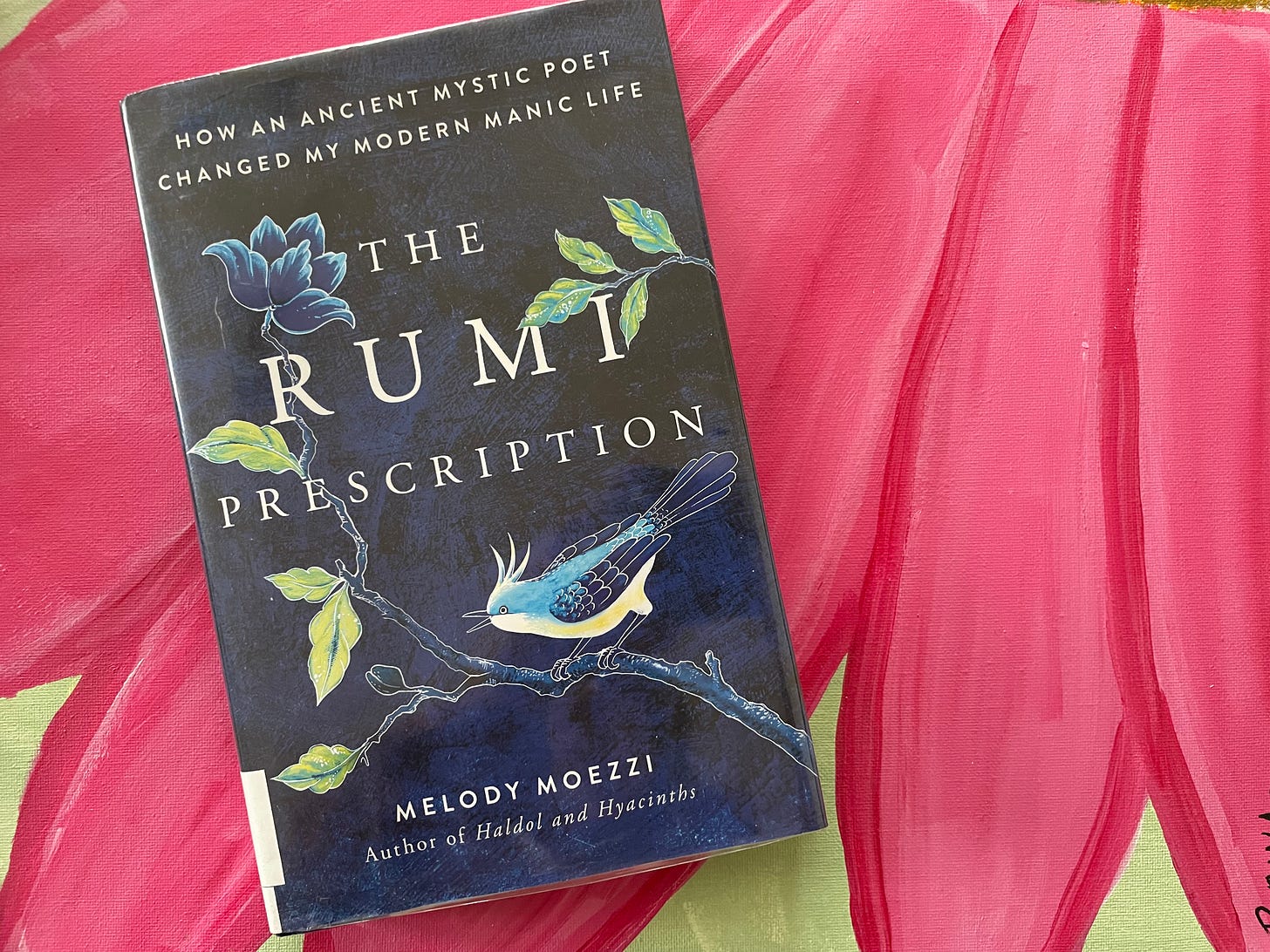
Since childhood, poetry has always been there for me, like a soft cushion that cocoons my body when the world beyond feels too rough.
While cleaning out old belongings a couple of months ago, I came across poems I’d written at age nine. In the two decades that have passed, I laugh at how petty they sound. (The word “brat” is used liberally, as you’ll see in the image below.) I presently realize that poetry was my way of processing the anger, apathy, and pangs of sorrow I felt.
As an adult, poetry has played the same role, guiding me through heartbreak and helping me make sense of the nonsensical. It’s beautiful how, even when we feel scared and scattered, poems are there to remind us that we’re hardly alone. People living hundreds of years ago experienced uncannily similar feelings as we do in the modern era. Poetry is an invisible thread that ties us to one another, offering a space for solace and solidarity.
I’ve always hesitated to call myself a poet; to even admit that I write poetry. Poems involve excavation, an examination of the dark depths within. I suppose I never wanted to be seen as the “overly emotional” person; to admit my worries and weaknesses to the world. More than this, I struggled with the “I’m not good enough to be called a poet” thoughts — perhaps the biggest creative hindrance there is. But it’s now apparent that poetry is a gateway to courage and creative evolution, and there’s no “right” way to go about it.
Something else about poetry has always remained elusive. Writing blogs or prescriptive nonfiction, which I’ve done quite a bit of in the past few years, has an air of structure and consistency to it. You outline your work and show up at the same time each day until your work is done. Poetry, on the other, hand has been much more unpredictable — a bolt of creative lightning that only strikes in specific circumstances. Poems have primarily flowed forth from me in times of emotional intensity — pure bliss or unbearable pain.
Furthermore, poems tend to appear in my mind when I’ve silenced the world outside and connected to an inner calm. They require a synergistic mix of conditions to formulate, and I’m slowly getting better at protecting my headspace; to give the words the freedom to come forth.

I recently read (and can’t stop gushing about) Melody Moezzi’s book, The Rumi Prescription: How An Ancient Mystic Poet Changed My Modern Manic Life (thank you,
, for putting it on my radar). In it, Moezzi candidly discusses her struggles with bipolar disorder and how poetry become pivotal in her healing journey.As an Iranian-American, she’d grown up hearing her father recite Rumi’s poems. It’s not until her 30s, however, that she fully embraces the 13th-century Sufi mystic’s words to alleviate her emotional wounds and long-standing limiting beliefs. With her father, Moezzi translates the Farsi versions of many of Rumi’s poems, aiming also to preserve the Islamic references, which most widely-read translations omit.
Since hearing of Rumi several years ago, I, too, have found his words to be immensely healing and inexplicably transcendent. Moezzi’s translations remind me that poetry is, in many ways, like a prescription. Little pieces of wisdom that redirect our focus to what matters and remind us of the strengths that lie within.
I think of all the other poets who have influenced my creative outlook. From the revered Rabindranath Tagore, Rupi Kaur, and Joy Harjo, to all of the brilliant creatives who publish on platforms like Medium and Substack. And there’s so much of it yet to be discovered.
Like a lot of you, I’ve done away with New Years’ resolutions and the need to charge ahead into the next chapter. I am, however, taking ample time to reflect and notice what hasn’t been serving me. One theme that arises — that has continued to come up — is a fear of vulnerability. A fear to fully say what I want to say and show up as I want to show up. I do this in my writing, yes, but I struggle to translate the same tendencies into my real-life interactions. I’m afraid of rocking the boat; of admitting my faults and flaws when I’ve built a façade of perfection for so many years.
It’s become exhausting.
A word I want to embody more of in 2024 is truth. I want to validate more of the sides of myself I’ve kept comfortably buried away. To not escape the uncomfortable feelings that arise when I acknowledge these sides, but to allow them to guide me in the direction of more authenticity and alignment.
I know that this is an ongoing — perhaps lifelong — process. There’s no guidebook for getting there, which is at once daunting but also liberating. I see now the pivotal role poetry plays in allowing me to embrace and embody more of this truth.
I’d like to share a few of the poems from The Rumi Prescription that I’ve been revisiting. However you choose to interpret them, I hope they open something up for you.
Until next time,
Brina
P.S. I’m in full discovery mode right now, so shoot any and all poetry recommendations my way. Whether you’re a poet yourself or there’s a particular body of work that’s really resonated with you, leave a comment/reply to this email and let me know what it is.
📝 Favorite Lines From Melody Moezzi’s The Rumi Prescription
“You went out in search of gold far and wide, but all along you were gold on the inside.”
“Quit being a drop. Make yourself an ocean. Abandon your ego and reap the Beloved’s devotion.”
“Anxiety is like an ax, so let your worries remit. They’ll cut off your own foot and think nothing of it.”
“Patience, not haste, gets you where you belong. Slow down and heed the Beloved’s song.”
🌹Reflection
What role has poetry, or another creative practice/hobby, played in your own life? What insights has this practice/hobby given you about yourself and the world at large?
🎨 Creative Corner
Song: “Begin (feat. Wales)” by Shallou (my nervous system always feels at ease after listening to this)
Movie: “Kho Gaye Hum Kahan” (a coming-of-age story about three best friends who face their separate romantic challenges, all worsened by the impacts of excessive social media use)
Article: “5 Ways To Be More Creative This Year” (simple but impactful tips from the National Gallery of Art)
Substack read: “The Anti-New Year’s Resolution Challenge” by
(a much-needed reminder that we’re lovable just as we are; that we don’t need to incessantly strive and prove ourselves to the world)





Love your word truth. Mine is flow. I plan on going over my word for next week’s newsletter and your word gives me more to think about! How I want more of my truth to flow throughout my life! Dig up my truths, where I may have been burying them!
🙏🏻🤍